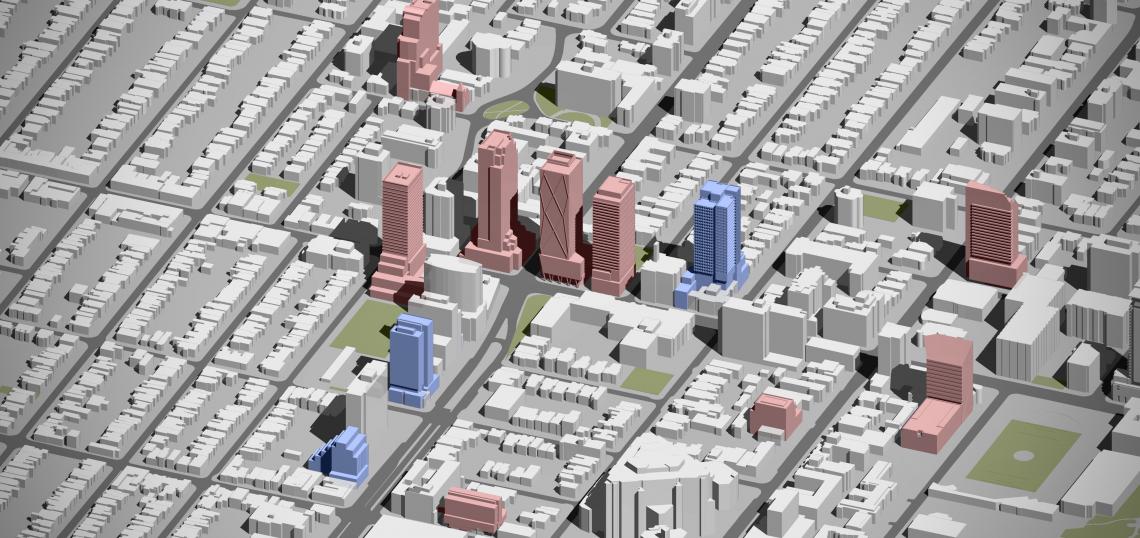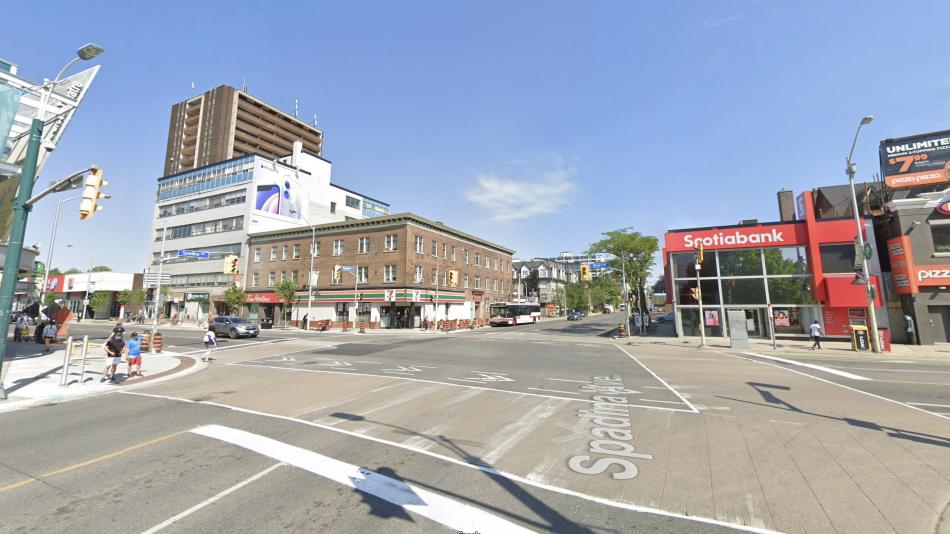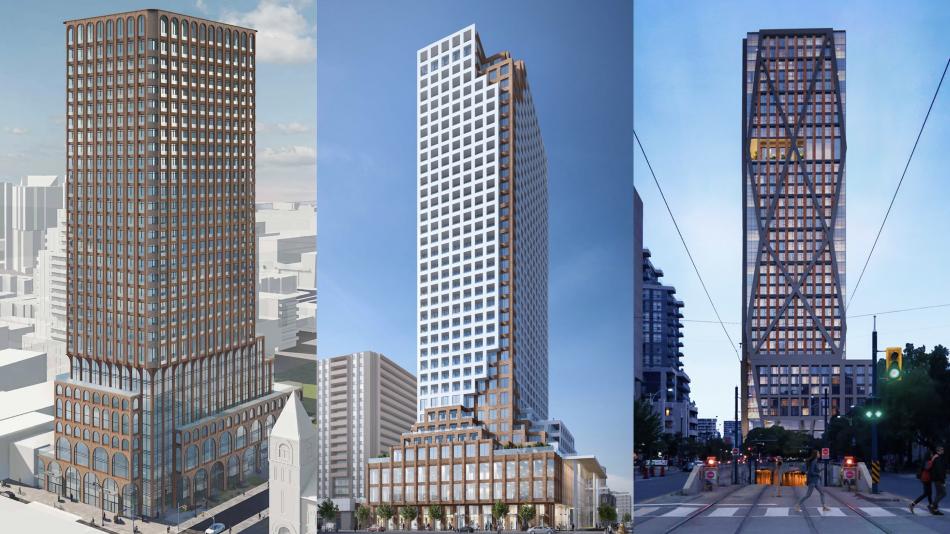Nestled between The Annex and the University of Toronto, the Bloor and Spadina intersection is an important node within the city of Toronto. Serviced by the nearby University-Spadina (Line 1), Bloor-Danforth (Line 2), and Spadina Streetcar (510), the neighbourhood is one of the most transit-supportive areas in the Downtown Core.
Despite the significant vertical growth of Toronto over the last decade, Bloor and Spadina has remained relatively untouched by high-density development — especially when compared to other parts of the city. However, the intersection is expected to change dramatically over the coming years, with a number of high-rise developments planned for the area.
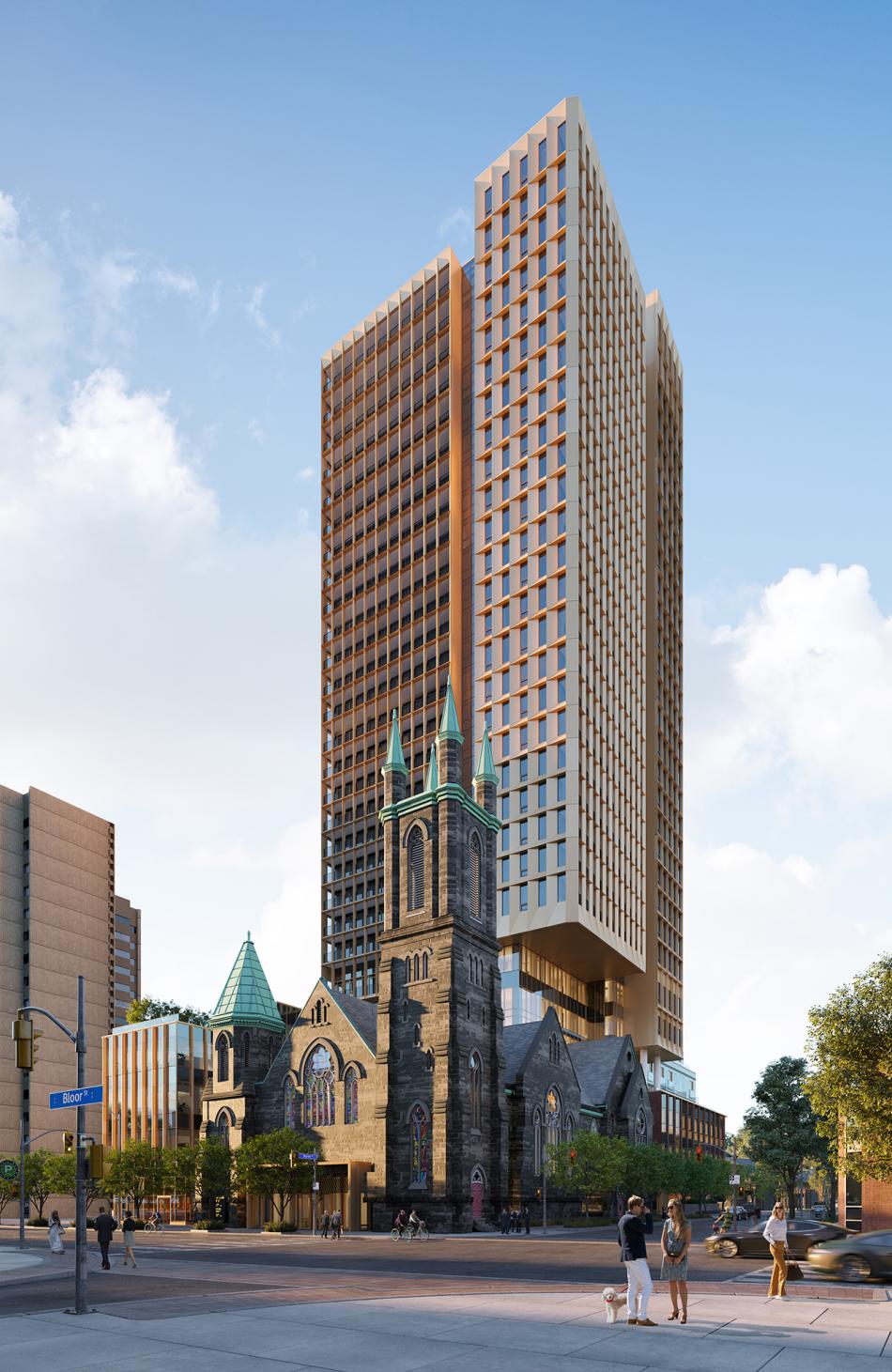 Rendering of Cielo Condos, currently under construction at 300 Bloor St W.Image Credit: KPMB Architects
Rendering of Cielo Condos, currently under construction at 300 Bloor St W.Image Credit: KPMB Architects
The first of these new towers will be Cielo Condos, now under construction at 300 Bloor St W. Originally proposed at 38-storeys, the 29-storey residential building from developer Collecdev integrates the 130-year old Bloor Street United Church as part of the development. At at height of 99 metres, it will become the tallest building in the neighbourhood, but may be surpassed by neighbouring developments proposed at 328 Bloor W (115m), 350 Bloor W (118m), and 425 Bloor W (104m).
The University of Toronto is also partnering with developer Westbank, for what is being called the largest university housing development in Canada. The project, tentatively named ‘The Gateway’, will rise from a portion of the site currently occupied by the University of Toronto Schools, on the south-east corner of Bloor and Spadina. A formal design for the project has yet to be unveiled to the public, but it is likely that the site accommodate increased density from what exists there today.
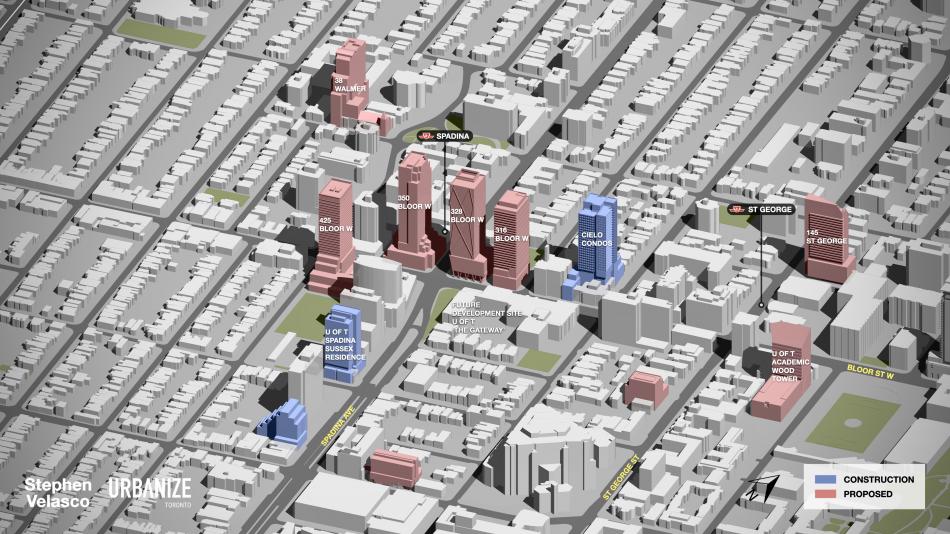 3D model of developments proposed (pink) and under construction (blue) at Bloor and Spadina.Image Credit: Stephen Velasco
3D model of developments proposed (pink) and under construction (blue) at Bloor and Spadina.Image Credit: Stephen Velasco
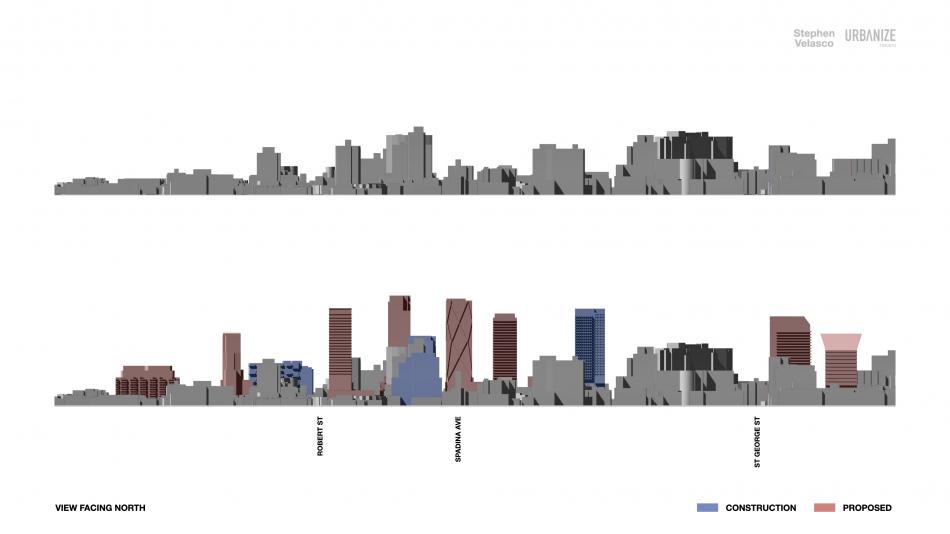 North facing elevation of Bloor-Spadina, showing heights of proposed (pink) and under construction (blue) developments.Image Credit: Stephen Velasco
North facing elevation of Bloor-Spadina, showing heights of proposed (pink) and under construction (blue) developments.Image Credit: Stephen Velasco
As Toronto continues to grow, strategic corridors like Bloor Street West will continue to be examined as areas where additional height and density can be supported. With the city’s growing population, demand for housing, and a limited amount of land zoned for high-density development, expect to see more towers in the future.
Stay tuned to Urbanize Toronto for the latest on development and construction in North America’s fastest growing city.




